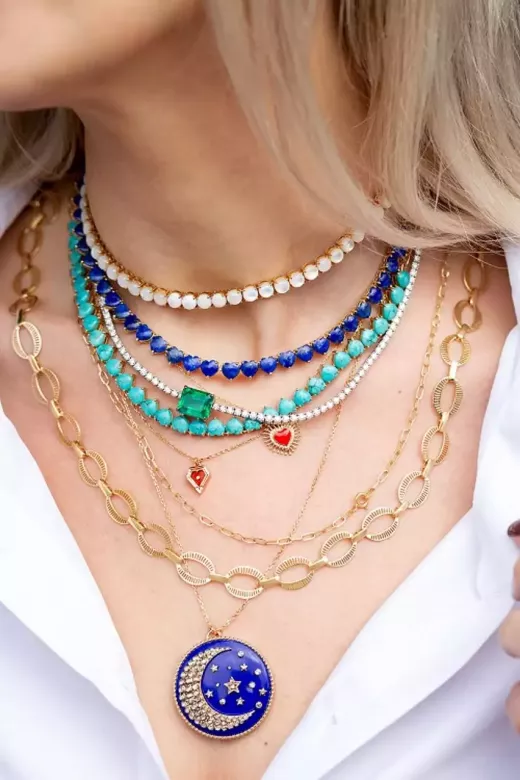The Controversy Surrounding the Tote Bag
Emily Mariko, a renowned fashion designer known for her avant-garde designs, released her new tote bag collection last week. With its sleek design and high-quality materials, the $120 price tag seemed justified to some. However, others argue that this price point is outrageous and out of touch with the average consumer.
Critics of the tote bag argue that its price does not align with its functionality and practicality. Some have pointed out that there are other similar options available at a fraction of the cost. On the other hand, Mariko's supporters claim that her brand's uniqueness and attention to detail justify the higher price tag.
Public Reaction and Social Media Backlash
The release of Emily Mariko's $120 tote bag sparked a wave of reactions on social media platforms. Many users took to Twitter and Instagram to express their opinions and concerns about the price. Some criticized Mariko for being out of touch with reality and catering solely to the wealthy elite. Others defended the designer, highlighting the craftsmanship and exclusivity associated with her brand.
The social media backlash gained momentum as influencers and fashion bloggers joined the conversation. Their opinions carried weight, as their followers look to them for fashion advice and trends. Influencers who criticized the tote bag's price were met with mixed responses, with some followers agreeing and others defending Mariko's artistic vision.
Exploring the Impact on Emily Mariko's Brand
The controversy surrounding the $120 tote bag had both positive and negative implications for Emily Mariko's brand. On one hand, the attention generated by the controversy increased brand visibility and attracted new customers who were intrigued by the debate. On the other hand, the negative backlash led some potential buyers to question the brand's values and pricing strategy.
As the controversy unfolded, Mariko and her team were forced to address the criticism and defend their pricing decisions. They emphasized the quality of materials used and the craftsmanship that goes into each tote bag. However, the negative sentiment surrounding the price continued to persist, potentially impacting the brand's reputation in the long run.
The Role of Influencers in the Controversy
Influencers play a significant role in shaping consumer opinions and trends in the fashion industry. Many of them were divided on the issue of the $120 tote bag. Some influencers publicly criticized the price, expressing disappointment in Mariko's decision. Others, however, defended the designer, highlighting her artistic vision and the exclusivity associated with her brand.
The influence of these influencers extends beyond their initial posts. Many of their followers engaged in debates and discussions in the comments section, further fueling the controversy. The power dynamics between influencers, brands, and consumers became apparent as opinions clashed and perspectives were challenged.
Analyzing the Ethical Considerations
Beyond the price debate, the controversy surrounding Emily Mariko's tote bag also raised ethical considerations. Critics argued that the high price perpetuates exclusivity and elitism in the fashion industry. They questioned the fairness of creating a product that only a select few can afford, while others struggle to meet basic needs.
Supporters of Mariko's brand countered these arguments by emphasizing the value of artistry and craftsmanship. They argued that luxury fashion is inherently exclusive and that Mariko's pricing reflects the brand's commitment to quality and uniqueness. The ethical implications of luxury fashion pricing continue to be a topic of discussion within the industry.
Lessons Learned from the Controversy
The backlash surrounding Emily Mariko's $120 tote bag offers valuable lessons for both consumers and fashion brands. It highlights the importance of transparency in pricing and the need for brands to clearly communicate the value they provide. Additionally, the controversy emphasizes the power of social media and the role of influencers in shaping public perception.
For consumers, the controversy serves as a reminder to critically evaluate the products they purchase and the values associated with the brands they support. It encourages them to question whether the price they pay aligns with their personal values and priorities.
Conclusion: The Future of Luxury Fashion and Consumer Perceptions
The controversy surrounding Emily Mariko's $120 tote bag sheds light on the evolving dynamics between luxury fashion brands and consumers. It raises questions about the meaning of luxury and the role of exclusivity in the industry. As consumers become more conscious of their purchasing decisions, brands will need to adapt and find a balance between artistry, quality, and accessibility.
Ultimately, the controversy surrounding the tote bag serves as a catalyst for dialogue and reflection within the fashion industry. It challenges designers, brands, and consumers to reconsider their perspectives and expectations. Only time will tell how this controversy will shape the future of luxury fashion and consumer perceptions.
In conclusion, the $120 tote bag controversy surrounding Emily Mariko's latest creation has sparked intense debates and discussions. The arguments against and in defense of the tote bag's price have shed light on various aspects of the fashion industry, including functionality, exclusivity, and ethical considerations. The impact of the controversy on Mariko's brand and the role of influencers have further fueled the debate. As the industry continues to evolve, lessons can be learned from this controversy, which will shape the future of luxury fashion and consumer perceptions.
















